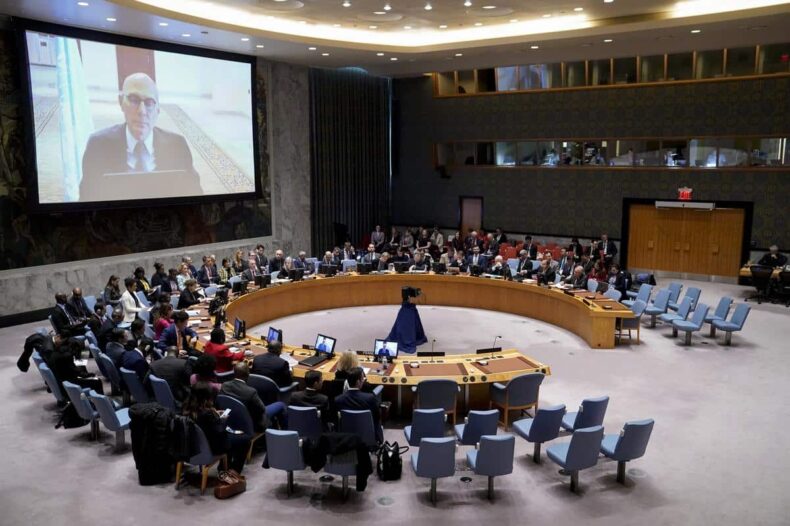At the U.N. the world’s divided nations agree on one thing: that there is little trust between them in a world plagued with crises and conflicts.
On May 3rd, the world’s divided nations agreed that there was a lack of trust between them. In a world beset with crises and conflicts, the nations are not ready to trust each other.
The diplomats at the U.N. Security Council proposed measures for moving towards a more peaceful future—a task that is certainly difficult but not impossible.
Switzerland is in its first presidency of the U.N.’s most powerful body. The Foreign Minister of the country, Ignazio Cassis, chose the topic of trust during the debate.

Currently, the world is facing a lack of trust in institutions across all sectors, and there are no signs of that changing anytime soon.
The Foreign Minister of the Republic of Suriname told the U.N. in 2018 that a lack of trust among the nations was a treat to progress.
“We still live with war”
He recalled that when the U.N. was established on the remains of World War II, its main aim was to prevent another war, and the nations trusted each other. He added that today we are still living with war.
Cassis further added that international diplomacy was under stress, and the members of the U.N. are yet to acknowledge the frustrations and challenges that the world is facing at the moment.

According to him, the international system where no joint actions are taken by the nations is a failure, as the real failure is to do nothing, and the international system where nations act together is “not bankrupt.”
Cassis challenged the Security Council to undertake its responsibility of maintaining international peace and security and rebuilding broken bridges.
He stressed the need to reflect on the council’s potential for action in the face of the expanding number of crises.
Treacherous activities of the West
The Russian Ambassador to the U.N., Vassily Nebenzia, highlighted the challenges of rebuilding the bridges in clear words, citing deep-seated trust divides and trust issues among the 15 members of the council.
He blamed the “treacherous activities of our former Western partners.”
He said that over the last 15 to 20 years, the West has managed to destroy the strands of mutual understanding and cooperation that had evolved after the end of the Cold War.

Nebenzia said that the West has made false promises of no NATO expansion, promoted revolutions in Eastern European countries that were formerly a part of the Soviet Union, and tried to impose its own world order.
The Russian Ambassador specifically referred to Ukraine, which he said had been relegated to a pawn in the geopolitical war between the West and Russia.
Battle for peace and security
Albania’s U.N. Ambassador Ferit Hoxha, whose country is a member of NATO, rebutted that the role of the Security Council is to be the frontrunner in the battle of peace and security and not be a pawn in the growing instability and aggression in the world, including the Russian invasion of Ukraine.
According to him, trust is the glue that holds everybody together, and the war in Sudan, disagreements regarding elections in Libya, and the leaving of Haiti in the hands of the gangs demonstrate the lack of unity and trust among the nations.

Russia has been accused of violating the U.N. charter by Secretary General Antonio Guterres and many other countries.
The U.N. charter declares that the sovereignty and territorial integrity of every nation should be respected.
Nebenzia has said that joint efforts are needed to come up with a modern, more sustainable international security structure.













